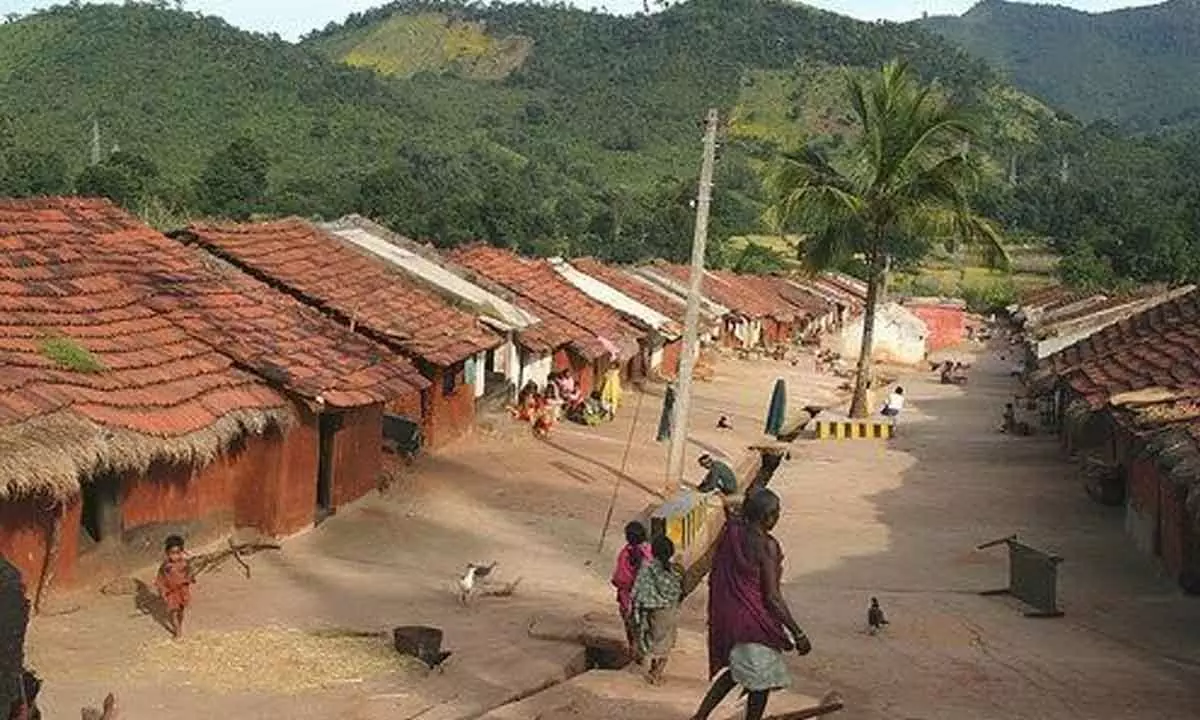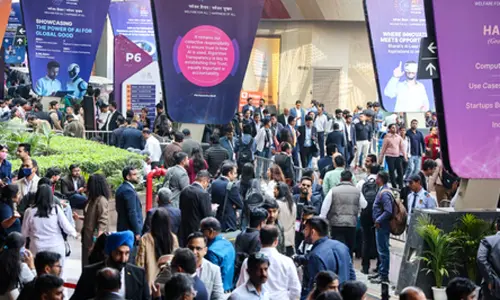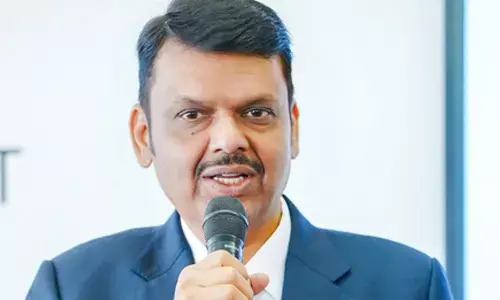When tribal outreach bears fruits...

Drinking water availability was a big challenge, especially on hilltop villages. They collected water from mountain streams and pools. For example, there was no road connectivity to Jarada. It took a minimum of three hours of walk on the steep path to the village. Tribals were not adept at digging wells. The possibility of drilling a bore was not there. The next worry was getting services of a water diviner to suggest spot for digging a well. After deliberating with my engineering staff, I took up the challenge of fixing the spot, relying on my hunch with intense prayer in my heart. Tribals by now started giving a lot of credence to ITDA and began to dig open wells for drinking water
From the forest areas of Warangal district, we packed our bags and moved by 1987 to Parvatipuram. Allwyn fridge which was offered to all probationers at a special rate was the most valuable possession till then. Now in Integrated Tribal Development Agency (ITDA) as a Project officer, there is no supervision of Collector to correct and guide my actions. Project officer becomes answerable to a set of representatives of Scheduled Tribes (STs). There is a governing body which is presided over by District Collector. The Chairperson of Zilla Praja Parishad, MLAs of the tribal area are all members of this body that meets once a quarter.
A geographical area where at least 50% of the population is of STs is called a Project Area or Tribal Sub-Plan (TSP). In this area, there were scheduled villages where the land ownership is only with STs and there are statutes to nullify land sale transactions indulged in by non-STs. In this ITDA, there were 8 mandals consisting of 297 scheduled villages and there were another 154 villages in TSP where sizeable population was of STs. There were another 183 villages which were inhabited by STs, which were actually called ‘primitive tribal groups’. This ITDA came into existence in 1980 and by 1982 the headquarters shifted from Vizianagaram to Parvatipuram. When Vizianagaram district was formed, carving portions of Visakhapatnam and Srikakulam districts, some tribal villages of erstwhile Visakhapatnam district were not included in the TSP area of Parvatipuram ITDA. There was sizeable population of STs that were left out that way. The agency areas are mainly hilly ranges. The Eastern Ghats are hilly areas that have rich fauna and flora. Most of the tribal villages are scattered and located on mountain tops. During the anti-naxal operations of 70s, the government ‘persuaded’ these tribals to form large new colonies in more accessible plain areas. There are perennial rivers flowing in the areas like Nagavali, Vegavati, Gomukhi, Vottigedda and Janjhavati. There is a good monsoon of over 1,120 mm rainfall resulting in overflowing mountain streams and on the flipside creating huge malaria incidence in the agency due to water stagnation.
I must mention about the ‘Vasthu’ problem that I encountered with my official residence. I held in the past additional charge of ITDA as Sub-Collector. So I had reasonable exposure to tribal welfare administration. But strangely for a few months I was not getting required momentum in my office work at this place. I cannot recall who suggested but I requisitioned the services of an officer in Malaria Eradication programme to check the ‘Vasthu’ of the official residence. On his recommendations, I got the septic tank in north-east corner removed and plumbing was re-done. Soon, I saw the positive impact of this vasthu correction.
My good friend Manohar Prasad, IAS, visited the agency area. We spent a few days visiting tribal habitations. He gave me significant insights into horticulture programme. He spent a few hours at the horticulture nursey-cum- training centre at Savara Kotapadu. I learnt so many details about the horticulture programme and that enabled implementation of extensive horticulture programme in agency area. Many training programmes were taken up for tribal men and women on vegetative propagation of important species of mango, cashew, guava and sapota varieties. My visits to S K Padu Farm thus became more frequent.
‘Podu’ or shifting cultivation was the common practice of tribals. Since the plain lands were not having potential for good yielding crops, the tribals largely relied upon cultivating red gram and castor on mountain slopes through ‘Podu’. The government took assistance of International Fund for Agriculture Development (IFAD) and shifting farming cultivation was tackled in a comprehensive manner. Cashew plantations were taken up on the mountain slopes with trenching and cross-bunds facilitating monsoon overflows to irrigate those plants. The impact of cashew plantation initiated by my predecessors like Chellappa and Asutosh Mishra are all there to see. The additional resources available from IFAD facilitated planting of huge extents of cashew plantations. Attempts were also initiated to take up plantation of minor forest produce yielding plants like Gum Karaya, Tamarind, Cleaning nuts etc., due to good efforts of Vasanth Kumar, a motivated Forest Range Officer.
Visit of the Chief Minister, N T Rama Rao, to the district proved to be a memorable windfall. The CM conducted a drought review meeting at S Kota. One of the ST legislators, Rajaiah of Salur, was not present, but sent his greetings through another legislator. The CM went emotional about tribals and said that his government was committed to seeing all-round progress of tribals. I saw the opportunity, thanks to nudging of illustrious senior T R Prasad. I proposed to the CM that a few check dams and irrigation wells undertaken by tribals can eliminate the role of middlemen and result in bringing more irrigated lands in tribal hold. The CM readily sanctioned Rs 1 crore for this project and that really gave a huge boost to tribal development in my area. My tribal welfare engineering wing lived up to our expectations in completing the work in time. Tribal Culture Research And Training Institute called the action plan of 1988-89 a ‘rare document.’ In preparation of the plan, field visits and meetings were conducted at 16 places in 8 TSP mandals. All of us from ITDA were there to discuss with tribals on the available schemes and elicited their response. In all the nodal meetings, tribal representatives from mandals and bankers were invited. Sericulture was also encouraged and tribals came in good numbers seeking that scheme.
Drinking water availability was a big challenge, especially on hilltop villages. They collected water from mountain streams and pools. For example, there was no road connectivity to Jarada. It took a minimum of three hours of walk on the steep path to the village. Tribals were not adept at digging wells. The possibility of drilling a bore was not there. The next worry was getting services of a water diviner to suggest spot for digging a well. After deliberating with my engineering staff, I took up the challenge of fixing the spot, relying on my hunch with intense prayer in my heart. Tribals by now started giving a lot of credence to ITDA and began to dig open wells for drinking water. Tribal welfare engineering was led by Kondal Rao as Chief Engineer. He was extremely practical and understood the challenges involved in carting material like sand, cement, and steel for the construction to hilltops and fixed rates on human load basis. This was a game changer. Nearly 200 drinking water wells were undertaken by novice tribals. A bunch of tribals came to my residence from Jarada village one afternoon, after they struck groundwater and offered red bananas as their celebration for success. My wife without knowing the story refused to take them. Tribals do not accept any favours from anyone for free! Some learnings on simple living.








